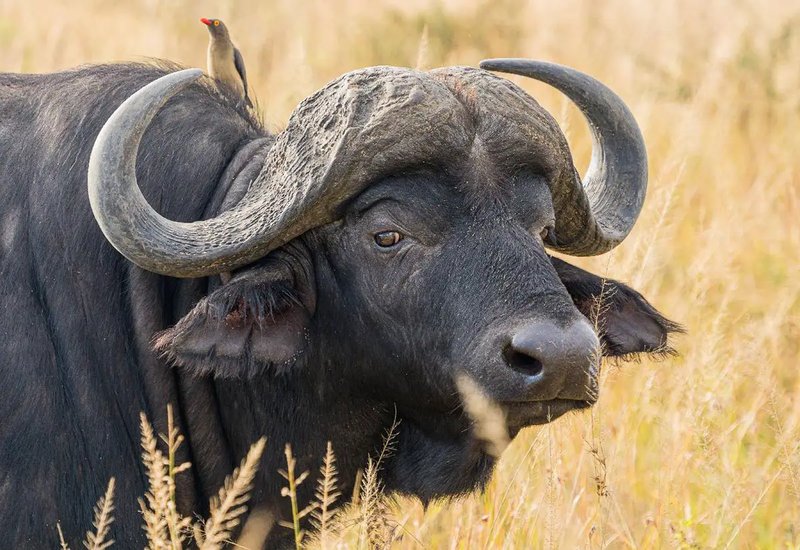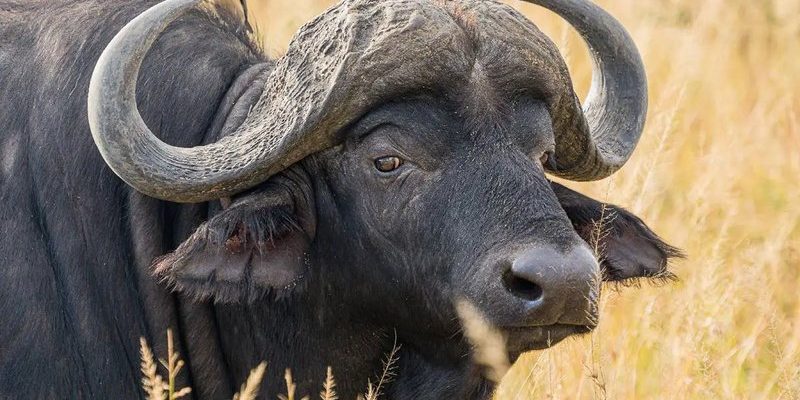
Imagine sitting in a café and overhearing a conversation about a group of friends working together to solve a problem. That’s kind of how African buffalo operate in their herds. They rely on teamwork, communication, and sometimes even strategic thinking to navigate their world. So, just how smart are they? Let’s dive in and explore the fascinating cognitive world of African buffalo.
The Social Structure of African Buffalo
African buffalo are known for their strong social structures, living in herds that can comprise anywhere from a few dozen to over a thousand individuals. These herds are often led by older females, who possess a wealth of knowledge about the landscape, water sources, and potential dangers, like predators. You might be wondering, what does this have to do with their intelligence?
Well, it turns out that their social connections enhance their cognitive skills. Just like in a human community, buffalo learn from each other. When a decision needs to be made—like when to move to a new grazing area—herd members communicate and collaborate. This dynamic is reminiscent of how people brainstorm ideas and weigh options before arriving at a consensus. The ability to work together improves their chances of survival in the wild.
Communication Skills
African buffalo are quite chatty, using a range of vocalizations to convey different messages. They have deep, resonant bellows that can be heard over great distances. Think of it as their very own version of a group chat, where each sound carries specific meanings. For example, a low grunt might signal calmness, while a loud snort could indicate that they’re sensing danger.
What’s fascinating is that these vocal cues have multiple layers of meaning. Researchers have found that buffalo can even distinguish between calls from different herds, suggesting that they can identify friend from foe. It’s like being able to recognize a familiar voice on the phone without seeing the caller ID. This ability to communicate effectively is just a glimpse into their intelligence.
Problem Solving and Adaptability
In the wild, adaptability is key to survival. African buffalo showcase impressive problem-solving skills, particularly when faced with obstacles. For instance, if they encounter a broken fence or an unexpected predator, they’re not just going to run away blindly. Instead, they assess the situation and might choose to work together to find an escape route.
A study showed that buffalo would sometimes use strategic movements to confuse predators, like lions. They might create a circle facing outward, making it hard for the lion to single out an individual target. Here’s the thing: this isn’t just instinct; it’s a calculated response. Such behavior indicates higher cognitive functioning, like planning and cooperative strategy.
Memory and Learning
Another intriguing aspect of the African buffalo’s intelligence is their memory. Buffalo can remember past experiences, particularly regarding danger. They tend to steer clear of areas where they’ve previously encountered threats, like a pride of lions. This kind of memory is akin to the way humans remember specific events to avoid making the same mistake twice.
Moreover, young buffalo learn from their mothers and other herd members. They observe how adults react to different situations—whether it’s finding food or responding to threats. This social learning is crucial for their survival and indicates not only intelligence but also emotional connections within the herd.
Emotional Intelligence
You might think intelligence is solely about problem-solving, but emotional intelligence plays a big role too. African buffalo show signs of empathy, particularly towards their young and injured members. When a calf is in trouble, other buffalo often come to its aid, forming a protective wall around it.
This behavior suggests a level of awareness and understanding of one another’s feelings and needs. In a way, it’s like watching friends rally around someone going through a tough time. Such strong bonds help maintain the herd’s cohesion and boost overall survival rates, showing that their intelligence extends beyond mere survival tactics.
So, how smart are African buffalo? They’re more than just tough animals roaming the savanna. Their cognitive abilities reveal a complex social structure, effective communication skills, impressive adaptability, strong memories, and deep emotional intelligence. Each of these traits plays a vital role in their survival and success as a species.
As we continue to study and observe African buffalo in their natural habitat, it’s essential to appreciate the depth of their intelligence. They remind us that the animal kingdom has much to teach us about cooperation, communication, and compassion. Next time you think of African wildlife, consider the clever minds hidden behind those sturdy horns and massive frames.

